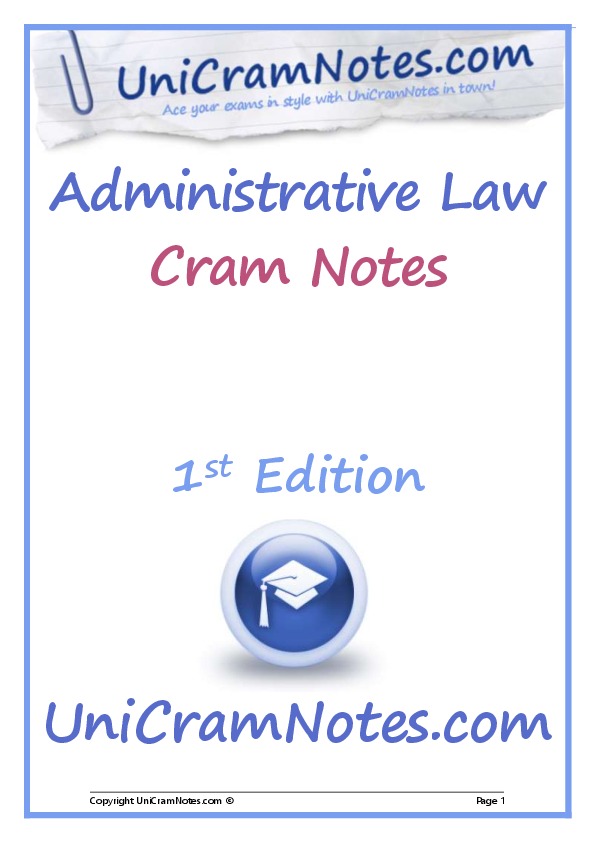C. IS IT A DECISION (IF APPLYING FOR REVIEW UNDER THE ADJR ACT)? The ADJR Act only applies to a decision as defined under the Act, being a decision of an administrative character made under an enactment (s 3). i. REVIEWABLE DECISION OR CONDUCT 1) Decision A decision must be a reviewable decision in order for judicial review to take place (s 3). ABT v Bond – The decision provided for by statute must be one which is substantive, final and operative, with the “character or quality of finality”. It must be determinative, and not merely procedural. – A conclusion reached as a step in the course of reasoning (i.e. an intermediate determination) leading to an ultimate/operative decision would not be a ‘decision’ unless it was a determination for which the statute provided for. That is, it must be an essential preliminary decision to the making of the ultimate decision. This may include findings of fact (if it were not just a step along the way) – A preparatory act is not a decision (but it may be reviewable conduct – see below) 2) Conduct Alternatively, conduct may also amount to a reviewable decision if it was done “for the purpose of making a decision” (s 6). This refers to action taken, rather than a decision made. Section 3(5) also provides that a reference to conduct engaged in for the purpose of making a decision includes a reference to the doing of any act or thing preparatory to the making of the decision
The most concise and updated Administrative Law Study Notes for Australian Law Students.
Does not include Model Exams and Model Exam Answers.
(Click here to purchase the Notes & Model Exam Answers)
Approximately 18111 words over 40 pages. Prepared in 2025.










